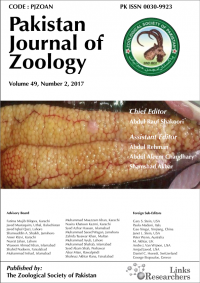Effects of Quorum Sensing AHL Signaling on the Biological Characteristics of Porcine Derived F4ac+ Enterotoxigenic Escherichia coli
Effects of Quorum Sensing AHL Signaling on the Biological Characteristics of Porcine Derived F4ac+ Enterotoxigenic Escherichia coli
Yang Yang1,2, Ji Shao1,2, Mingxu Zhou3,4, Qiangde Duan1,2, Xinyi Zhang1,2 and Guoqiang Zhu1,2*
ABSTRACT
To share on other social networks, click on any share button. What are these?










